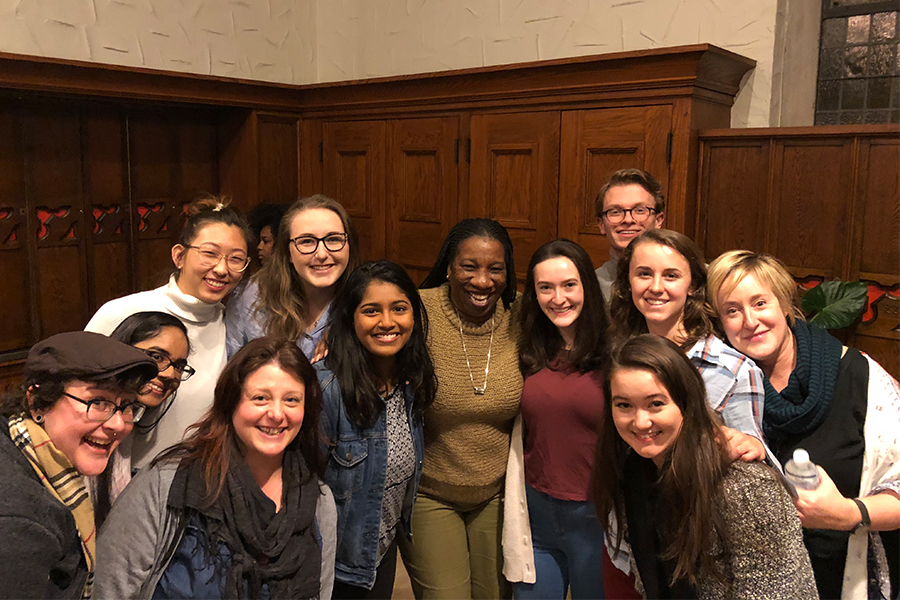
Grand Challenge Seminar Class Meets #MeToo Movement Founder
By Shilo Rea
When Tarana Burke, founder of the #MeToo movement, spoke in Pittsburgh earlier this month, Carnegie Mellon University students were among the nearly 1,000 in attendance, including professors and students from the Dietrich College of Humanities and Social Sciences’ Grand Challenge Seminar on “Shifting a Culture: Understanding Gender-Based Violence.”
The freshman seminars are designed to tackle complicated societal problems from multiple angles and perspectives. Lisa Tetrault, associate professor of history, Candace Skibba, associate teaching professor of Hispanic Studies, and Jess Klein, coordinator of gender programs and LGBTQ initiatives, are bringing their areas of expertise together to explore the many manifestations of gender-based violence, from stalking to human trafficking, and potential solutions.
Burke is known for first using the phrase "Me Too" back in 2006 to raise awareness of the pervasiveness of sexual abuse and assault in society. In October 2017, #MeToo began going viral on social media as a way for people to describe their experiences with sexual assault and harassment. Her talk seemed like the perfect way to tie current events to topics from the class.
“The opportunity to meet Tarana Burke and see her speak was not only inspiring, it was also very timely. Rarely do the words that students see on the page and use in the classroom find themselves almost simultaneously in the media and serendipitously in a talk by the leader of a movement that is shaping the topic of gender-based violence,” Skibba said.
Burke traced how the movement began, shared what the intense media spotlight has been like and what needs to be done now, such as changing the conversation to address the entire spectrum of sexual violence and focus on survivors.
“There’s a spectrum of sexual violence, and sexual harassment is on one end of that,” Burke told reporters after her talk, “and it has to be dealt with, because it creates a culture that allows sexual violence to happen, but if the conversation stays there, then there’s all the other parts of that spectrum that get ignored.”
First-year student Alison Munden thought that Burke’s message was the perfect supplement to the class materials, and Heitho Shipp called the experience “moving” and said Burke’s “intellect, passion and drive are incredibly admirable.”
Gayathri Manchella summed up the experience with one word: emotional.
“As women, we are usually marginalized, and then as a woman of color, some of us become even more marginalized, and to us, issues such as sexual assault are not taken as seriously. To watch a woman of color deliver such a powerful message, I felt as if I were watching history being written,” Manchella said.
Skibba—along with her co-teachers—hope events like this and the unique approach that the Grand Challenges Seminars take to educate students on real world problems will continue to have an impact.
“The level of energy experienced during Tarana’s visit was palpable and has been shared with the members of our class. This is the momentum that we hope to create with our course and the subsequent movements of our students and peers,” said Skibba.
Pictured above are faculty and students from the Grand Challenge Seminar on gender-based violence with Tarana Burke (center), founder of the #MeToo movement.